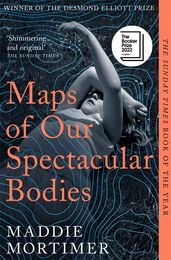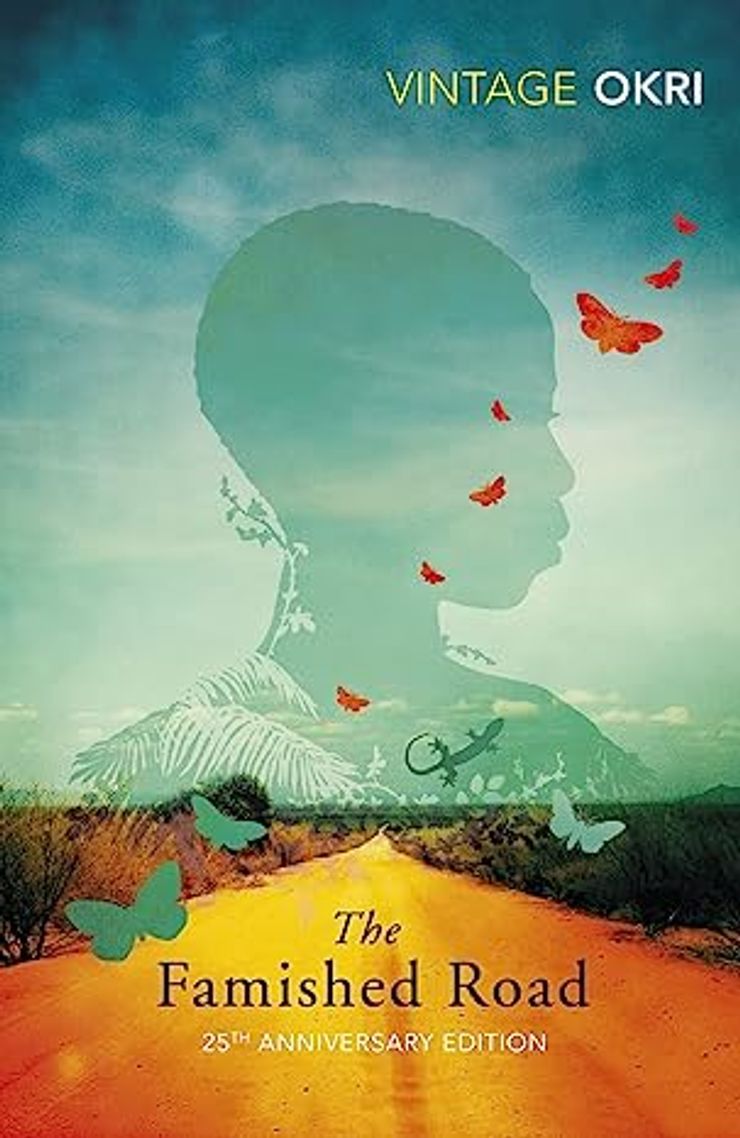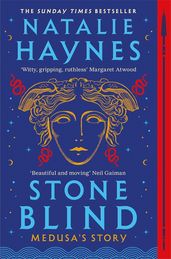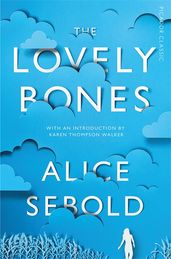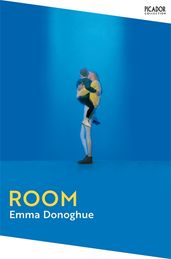Eight books with unusual narrators
First person, third person, queer mountain lion. . .

From big cats to parasites to a decapitated head, here are eight books where an unexpected voice tells the story.
Open Throat
by Henry Hoke
I’ve never eaten a person but today I might . . .
A queer and dangerously hungry mountain lion narrates this fever dream of a novel, carrying us on a universal journey through a wondrous and menacing modern day L.A. When the land around the Hollywood sign, where the lion lives, is destroyed by fire, they are forced down the hills and into the city. Confronted by a carousel of temptations and threats, they face the ultimate question: do they want to eat a person, or become one?
Maps of Our Spectacular Bodies
by Maddie Mortimer
Something gleeful and malevolent is moving in Lia’s body, and slowly taking over as this astonishing debut novel's narrator. Part-told by an ambiguous, shape-shifting second voice, this dark kaleidoscope of a book renders the disorientation that comes with your mother dying, and of being that dying mother, with endless invention. Lia has only one child, Iris; her magical, awkward, endlessly creative daughter who has just entered the battleground of her teenage years. Lia and Iris have always been close, but there is a war playing out inside Lia’s body, too, and everything is about to change. As she confronts what might be the end, memories of her own childhood and a passionate love affair come rushing into her present, unearthing buried secrets and her family’s deepest fears.
The Famished Road
by Ben Okri
Ben Okri's Booker-winner, the first book of a trilogy, is narrated by Azaro, a spirit child who exists between life and death. Despite belonging to a spirit world made of enchantment, where there is no suffering, Azaro chooses to stay in the land of the Living: to feel it, endure it, know it and love it. But he is constantly pursued by his sibling spirits who want him to leave his mortal life.
Stone Blind
by Natalie Haynes
Medusa is the sole mortal in a family of gods. Growing up with her Gorgon sisters, she begins to realize that she is the only one who experiences change, the only one who can be hurt. When Poseidon commits an unforgiveable act against her in the temple of Athene, the goddess takes her revenge where she can: on his victim. Medusa is changed forever – given writhing snakes for hair and a gaze that turns any living creature to stone. Natalie Haynes' witty, feminist version of Medusa's story is mostly told by a wry, acidic omniscient narrator, but other voices elbow their way in, including a crow, an olive grove, and the Gorgoneion: Medusa's decapitated head.
Leech
by Hiron Ennes
In an isolated chateau, as far north as north goes, the baron’s doctor has died. The Interprovincial Medical Institute sends out a replacement. But when the new physician investigates the cause of death, which appears to be suicide, there’s a mystery to solve. It seems the good doctor was hosting a parasite. Yet this should have been impossible, as the physician was already possessed – by the Institute. Told from the perspective of the parasite itself, this creeping, dark debut is a Gothic sci-fi triumph.
The Lovely Bones
by Alice Sebold
My name was Salmon, like the fish; first name, Susie. I was fourteen when I was murdered on December 6, 1973.
Narrated by a teenager looking down at her family from heaven, this is a luminous, astonishing novel about life and death, memory and forgetting, and finding light in the darkest places. What Susie wants most is to be back on earth with the people she loved. She watches as her happy suburban family is torn apart by grief; as her friends grow up, fall in love, and do all the things she never had the chance to do herself. But as Susie will come to realize, even in death, life is not quite out of reach.
Room
by Emma Donoghue
For five-year-old Jack, there’s TV and there’s ‘in real’, and ‘in real’ begins and ends with Room, the ten foot by ten foot space where he lives alone with his Ma. It is hard not to experience a visceral, even physical, response to the events of Room, a profoundly upsetting and somehow also wonderful story of maternal love and survival. Told entirely by Jack, Room features one of the most distinctive narrative voices you’ll ever read and one of the most amazing mothers ever written.
Klara and the Sun
by Kazuo Ishiguro
Narrated by the Klara of the title, Ishiguro's first novel since winning the Nobel Prize is an exploration of AI and humanity from the point of view of the AI. Klara is an Artificial Friend. We meet her waiting in a shop, hoping a customer will choose her, carefully observing those who pass by the street outside. But when she is finally chosen, and it looks like her circumstances could change for ever, she starts to realise she shouldn't invest too much in promises made by humans.

